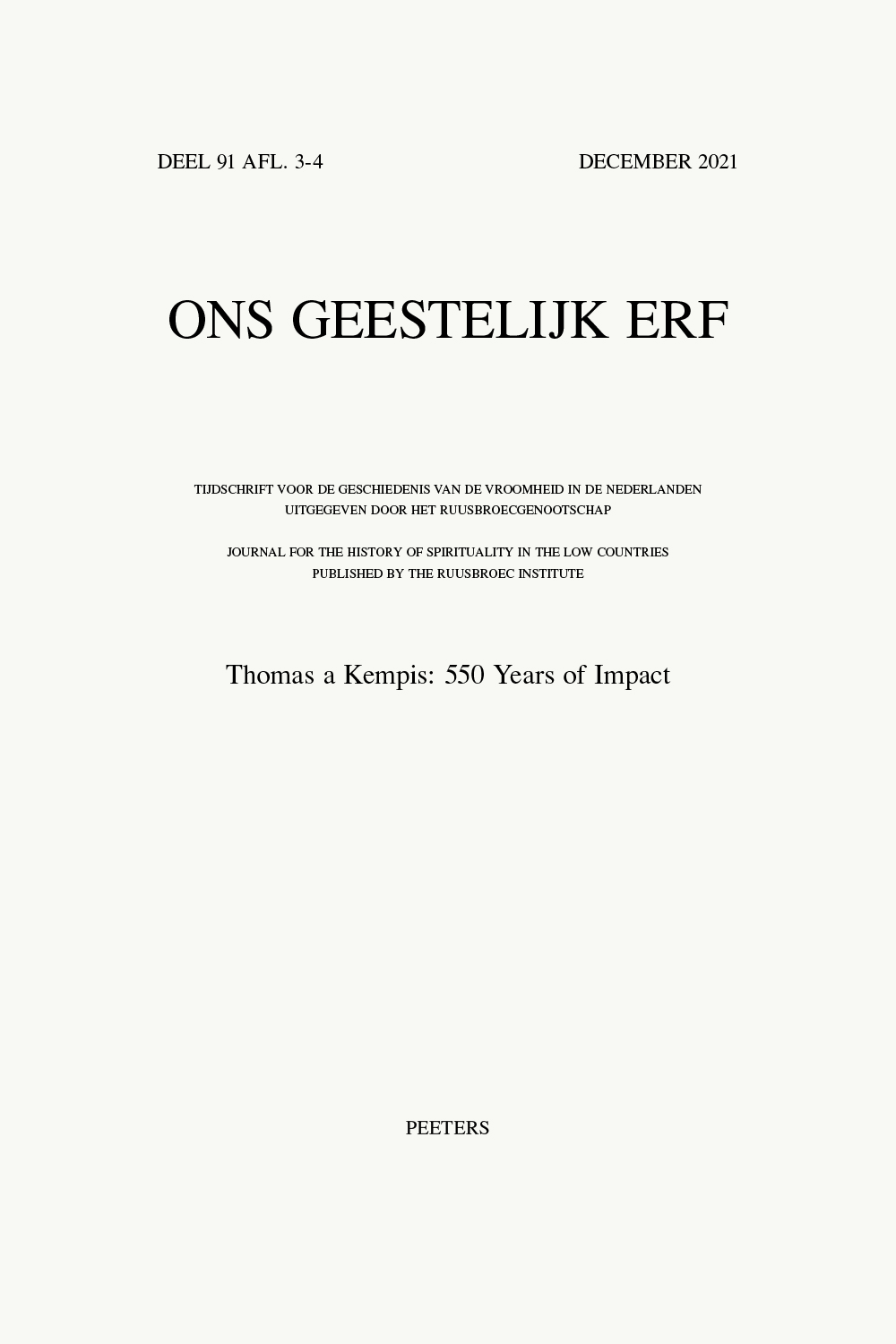 previous article in this issue previous article in this issue | next article in this issue  |

Preview first page |
Document Details : Title: Pseudo-Richard van St.-Victors Hoogliedcommentaar Subtitle: Een onderzoek naar de datering en de verspreiding van het Tractatus super Cantica canticorum Author(s): REYNAERT, Joris Journal: Ons Geestelijk Erf Volume: 93 Issue: 3-4 Date: 2023 Pages: 200-227 DOI: 10.2143/OGE.93.3.3293331 Abstract : The article examines the reception of the anonymous Tractatus super Cantica canticorum both in its Latin manuscript tradition and its dissemination in vernacular translations. The origin and the date of this commentary on the Song of Songs, which has long been attributed to Richard of Saint-Victor, are still uncertain. Recent literature assumes that its earliest copies belonged to the middle of the twelfth century, as they apparently were part of two manuscripts dating from that period. This assumption has to be reconsidered, since it appears that the manuscripts in question only contain the assumed prolog of the Tractatus which had in fact been added to the printed versions and was evidently borrowed from the Expositio super Cantica canticorum by (or attributed to) Gregory the Great. In fact, the earliest Latin manuscripts only date from about 1430, the oldest copies of the Dutch translation preceding them by three of four decades. As a consequence, the date ante quem for Pseudo-Richard’s commentary still has to be the Middle-Dutch translation of a part of it, which appears in the Letters of the Brabantine mystic Hadewijch and two other redactions preserved in manuscripts from about 1300 onwards. As our investigations corroborate the common (but sometimes still questioned) idea that the mystic herself indeed must have been the author of the translation, the latest dating for the Tractatus has to be ‘about 1250’, as this was, in the opinion of most scholars, the time when Hadewijch flourished. |
|


